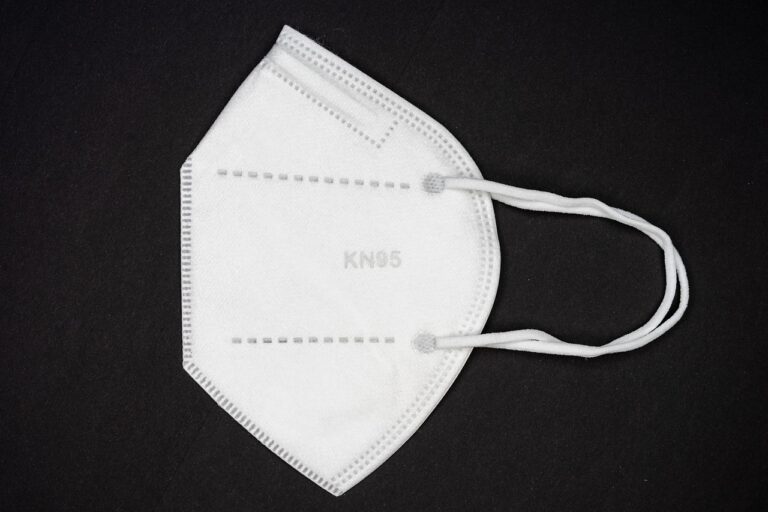Dementia Home in Singapore: Choosing the Right Care for Your Loved One
Dementia is a progressive condition that affects memory, cognitive function, behavior, and the ability to perform daily activities. In Singapore, where the population is aging rapidly, the number of individuals diagnosed with dementia is steadily increasing. According to the Alzheimer’s Disease Association, approximately 1 in 10 people aged 60 and above has dementia, and this number is expected to grow. For families, caring for a loved one with dementia presents both emotional and practical challenges. As the condition progresses, specialized care becomes essential. This is where a Dementia Home Singapore plays a critical role—providing a safe, structured, and compassionate environment tailored to the unique needs of dementia patients.
What Is a Dementia Home?
A dementia home is a residential care facility or nursing home specifically designed to support individuals with dementia or Alzheimer’s disease. Unlike standard eldercare facilities, dementia homes are staffed by professionals trained in memory care and behavioral management. These homes offer a secure environment with structured routines, customized therapies, and constant supervision to minimize confusion, agitation, and wandering. In Singapore, dementia homes may be standalone facilities, dedicated wings within larger nursing homes, or community-based group homes. The goal is to provide a living space where patients feel safe, respected, and engaged while receiving the medical and personal care they need.
When to Consider a Dementia Home in Singapore
Caring for a loved one with dementia at home can be rewarding, but it also comes with significant responsibility. As dementia progresses, family caregivers may struggle with managing behavioral changes, personal hygiene, nighttime wandering, or aggression. You might consider a dementia home if your loved one requires 24/7 supervision due to safety risks, shows signs of late-stage dementia with severe memory loss or disorientation, becomes physically aggressive or exhibits uncontrollable behavior, forgets to eat, bathe, or take medication, experiences frequent medical emergencies or hospitalizations, or if you, as a caregiver, feel physically and emotionally overwhelmed. Moving your loved one to a specialized dementia facility can improve their quality of life and reduce stress on the family.
Features of a Good Dementia Home
1. Secure and Safe Environment
Dementia homes are designed to prevent wandering and injury. Doors are secured, layouts are simple to reduce confusion, and living spaces are free of sharp edges or trip hazards.
2. Specialized Staff Training
Caregivers and nurses are trained in dementia care techniques including redirection, validation therapy, behavior management, and communication with memory-impaired individuals.
3. Person-Centered Care
A good dementia home offers individualized care plans tailored to each resident’s medical condition, personality, and preferences. Routines are adjusted to the resident’s needs, not the other way around.
4. Therapeutic Activities
Daily activities such as music therapy, art, reminiscence sessions, sensory stimulation, and light physical exercises help slow cognitive decline and promote emotional well-being.
5. Medical Support
Round-the-clock nursing support is available to manage medications, monitor chronic conditions, and handle emergencies.
6. Nutrition and Hydration
Dementia patients often forget to eat or drink. Dementia homes provide regular, balanced meals in a structured setting to support health and nutrition.
7. Family Involvement
Many dementia homes encourage family visits, involvement in care planning, and ongoing communication between staff and loved ones.
Types of Dementia Homes in Singapore
1. Government-Supported Nursing Homes
These homes receive partial funding from the Ministry of Health and offer subsidized care based on a family’s income. Some of these facilities have dedicated dementia care units.
Examples: Peacehaven Nursing Home, ECON Medicare Centre, and NTUC Health Nursing Homes.
2. Private Dementia Nursing Homes
These offer more amenities, lower caregiver-to-patient ratios, and tailored care plans. They are fully paid by families and generally charge higher fees.
Examples: St. Andrew’s Nursing Home (dementia wing), Lee Ah Mooi Old Age Home, and Ren Ci Nursing Home.
3. Dementia Day Care Centres
For families who can care for their loved ones at home during the evenings and nights, day care centres offer structured care during working hours, including meals, therapy, and supervision.
4. Group Homes and Community Living
Small-scale dementia group homes offer residential care in a home-like environment with fewer residents. This setting allows for more personalized attention.
Example: Apex Harmony Lodge is Singapore’s first and only purpose-built dementia home with a community-living model.
Cost of Dementia Home in Singapore
Costs can vary based on the type of facility, level of care, and eligibility for government subsidies. Below is a general guide:
| Facility Type | Estimated Monthly Cost |
|---|---|
| Government Nursing Home (with subsidy) | $700 – $2,500 |
| Private Nursing Home | $3,000 – $6,000 |
| Dementia Day Care Centre | $1,000 – $1,800 |
| Group Home | $1,500 – $3,500 |
These figures include accommodation, meals, nursing care, therapy, and activities. Additional charges may apply for medication, transport, or special equipment.
Financial Assistance Available
1. MOH Nursing Home Subsidies
Means-tested subsidies for Singaporeans and PRs receiving care at approved nursing homes. Assessments are done via the Agency for Integrated Care (AIC).
2. Home Caregiving Grant (HCG)
Monthly $250 cash payout to offset care costs, including day care or caregiver fees.
3. CareShield Life / ElderShield
Monthly payouts for individuals who are severely disabled and unable to perform three or more Activities of Daily Living (ADLs).
4. MediSave Care
Allows withdrawals of up to $200/month for long-term care expenses of the patient or immediate family member.
5. FDW Levy Concession
If a family hires a foreign domestic worker to care for a dementia patient at home, they may qualify for a reduced levy of $60/month.
Alternatives to Dementia Homes
Not every family may be ready to move their loved one into a facility. Alternatives include:
Home-Based Dementia Care: Hiring a trained caregiver or nurse to provide dementia care at home.
Respite Care Services: Short-term stay options at dementia homes or nursing facilities to give family caregivers a break.
Dementia-Friendly Communities: Community programs that provide cognitive stimulation, supervision, and peer interaction for dementia patients.
At iKare Home, we offer trained dementia caregivers for home-based care, respite services, and care coordination to ensure your loved one receives appropriate support at every stage.
How to Choose the Right Dementia Home
1. Tour the Facility: Observe the cleanliness, layout, safety features, and resident interaction.
2. Ask About Staff Qualifications: Ensure staff are trained in dementia-specific techniques and undergo regular upskilling.
3. Understand the Care Plan: Ask how the home develops care plans, tracks progress, and adjusts routines as conditions change.
4. Look for Activities and Engagement: Meaningful activities help maintain function and reduce boredom or aggression.
5. Ask About Family Communication: Check how regularly staff update family members on health and behavioral changes.
6. Review Costs and Contracts: Make sure you understand all charges, payment terms, and what is included.
Dementia Care Services by iKare Home
At iKare Home, we provide home-based solutions for families not yet ready for institutional care. Our trained dementia caregivers offer one-on-one support tailored to each stage of the condition. Services include assistance with daily living activities, behavior management, cognitive engagement exercises, medication reminders, respite care, and caregiver education and support. We also help families apply for subsidies and develop transition plans should a move to a dementia home eventually become necessary.
Frequently Asked Questions (FAQ)
What is the best dementia home in Singapore? There is no one-size-fits-all answer. The best home depends on your loved one’s stage of dementia, behavior, and financial situation. Reputable options include Apex Harmony Lodge, St. Andrew’s Nursing Homes, and NTUC Health facilities.
How do I apply for subsidies for a dementia home? Contact the Agency for Integrated Care (AIC). They will conduct a needs assessment and determine your eligibility based on household income and care needs.
Is it better to care for someone with dementia at home or in a facility? This depends on the stage of dementia, the availability of trained family members, and the safety of the home environment. Early stages may be manageable at home, while later stages often require specialized institutional care.
How quickly can I place my loved one in a dementia home? This varies by facility availability. Some homes have waitlists, while others can accommodate admissions within weeks. Emergency respite services are available in urgent cases.
Can dementia patients go home after staying in a dementia facility? Yes. If their condition stabilizes or if the family feels ready to resume home care, patients can be discharged. A transition plan with professional guidance is essential.
Final Thoughts
Finding the right dementia home in Singapore is a deeply personal and often emotional decision. Your loved one deserves a safe, compassionate, and engaging environment that supports both their cognitive and emotional well-being. Whether you’re planning ahead or facing an urgent need, understanding your options, costs, and available support will help you make confident choices. At iKare Home, we’re here to support you with information, guidance, and care services tailored to every stage of dementia. Contact us today to learn more about our dementia care programs or to discuss your family’s care needs.







